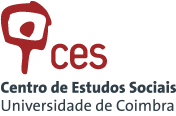Seminário
Language regimes and social identities: constructing differences through language in Timor-Leste
Alan Silvio Ribeiro Carneiro (PPGLA-UNICAMP)
21 de janeiro de 2014, 14h30
Sala 1, CES-Coimbra
A conferência será bilingue, em português e inglês.
Resumo
In the perspectives of Hymes (1973) and Bourdieu (1983), the basis of the contemporary reflection about language difference and inequality, language is seen as a human resource, which can receive different attributions of value and can be manipulated according to different social groups in the processes of social organization. During the history of the territory of Timor-Leste, due to the relation amongst the different local ethnolinguistic groups and also of these groups with the colonial powers established in the territory, emerged different conflicts around the languages to be considered legitimate in different contexts of social interaction (Bourdieu, 1983). The constitution of Timor-Leste of 2002 represented a trial to stabilize these conflicts with the institution of the official language policy giving the status of official languages to Portuguese and Tetun (Timor-Leste, 2002, p. 12), of national languages to the local languages (Timor-Leste, 2002, p. 12) and the status of working languages to English and Indonesian. However the relations amongst languages depend on the relations between different social groups with different interests, although the constitutional dispositive works as a centripetal force that regulates the language uses and the values attributed to languages, the practices of social interaction works as centrifugal forces that constructs new dynamics of languages uses and attribution of values to the languages of the country. The data to be presented are the result of an ethnographic research conducted between January and June of 2012 with teachers of Portuguese who work in the Timorese capital and index a complex reconfiguration of the value of the languages in the territory.
Nota biográfica
Alan Silvio Ribeiro Carneiro é doutorando em Linguística Aplicada na Universidade Estadual de Campinas, na área de Multiculturalismo, Plurilinguismo e Educação Bilingue, com bolsa do CNPq. Foi estudante visitante de doutorado do MOSAIC, Centre for Research on Multilingualism da Universidade de Birmingham, pelo programa Ciência sem Fronteiras, com bolsa da CAPES, entre 2012 e 2013. Foi professor visitante do Departamento de Língua Portuguesa da Faculdade de Ciências da Educação, Artes e Humanidades da Universidade Nacional Timor Lorosaé, de Timor-Leste, em 2012. Suas áreas de interesse são os estudos de sociolinguística, antropologia linguística e o ensino de português como segunda língua. É autor de artigos publicados sobre a implementação das políticas linguísticas e educacionais em Timor-Leste, por ex. Conflitos em torno da (des)construção da(s) língua(s) legítima(s): a situação da língua portuguesa no contexto multilíngue de Timor-Leste no livro organizado por Luiz Paulo da Moita Lopes em 2013 "O Português no século XXI: Cenário geopolítico e sociolinguístico". São Paulo: Parábola Editorial.
Atividade no âmbito do Núcleo de Estudos sobre Humanidades, Migrações e Estudos para a Paz (NHUMEP)

